On-Demand Outsourcing BPO Services for Healthcare Providers With 24/7 Coverage!
Save up to 70% on staffing costs!
Browse Specialty Staffing Services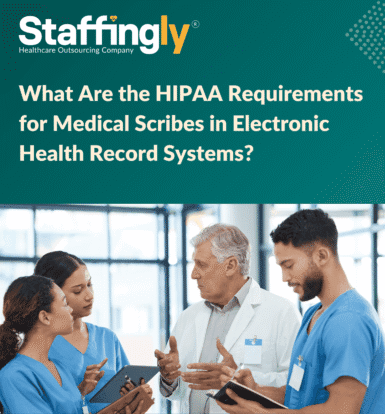
What Are the HIPAA Requirements for Medical Scribes in Electronic Health Record Systems?
Medical scribes play a critical role in healthcare practices by documenting patient encounters, ensuring that all relevant data is captured accurately and promptly. With the increasing adoption of Electronic Health Record (EHR) systems, these professionals are tasked with managing Protected Health Information (PHI) within highly secure digital platforms. But with the responsibility of managing sensitive patient data, it’s crucial for medical scribes to adhere to the Health Insurance Portability and Accountability Act (HIPAA) requirements. So, what exactly are the HIPAA
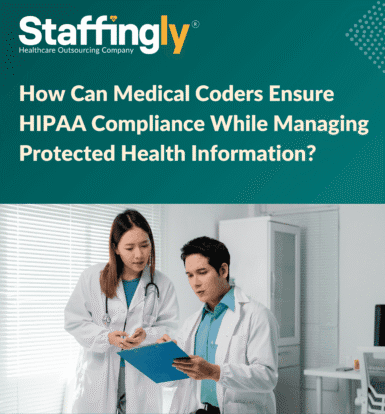
How Can Medical Coders Ensure HIPAA Compliance While Managing Protected Health Information?
When it comes to managing Protected Health Information (PHI), medical coders have an incredibly important job. They are responsible for translating patient information into codes for billing, insurance claims, and other purposes. But with all that sensitive data, ensuring HIPAA compliance for medical coders is absolutely essential. If you’re a medical coder or managing a team of coders, you’re probably wondering: how do you make sure you’re always compliant with HIPAA when dealing with PHI? Let’s take a look at

What’s the Smartest Way to Cut Claim Denials Through Better Medical Coding in 2025?
It’s Monday morning at a busy orthopedic clinic. Dr. Smith is reviewing her monthly revenue report and frowns. “Another 18% of claims denied,” she mutters. “All because of coding issues.” Despite her team’s hard work, payments are delayed, staff are buried in rework, and revenue keeps leaking through the cracks. She’s not alone. Across the country, practices are losing money—not due to poor care—but because of preventable coding errors. And in 2025, with stricter payer rules and tighter audits, the
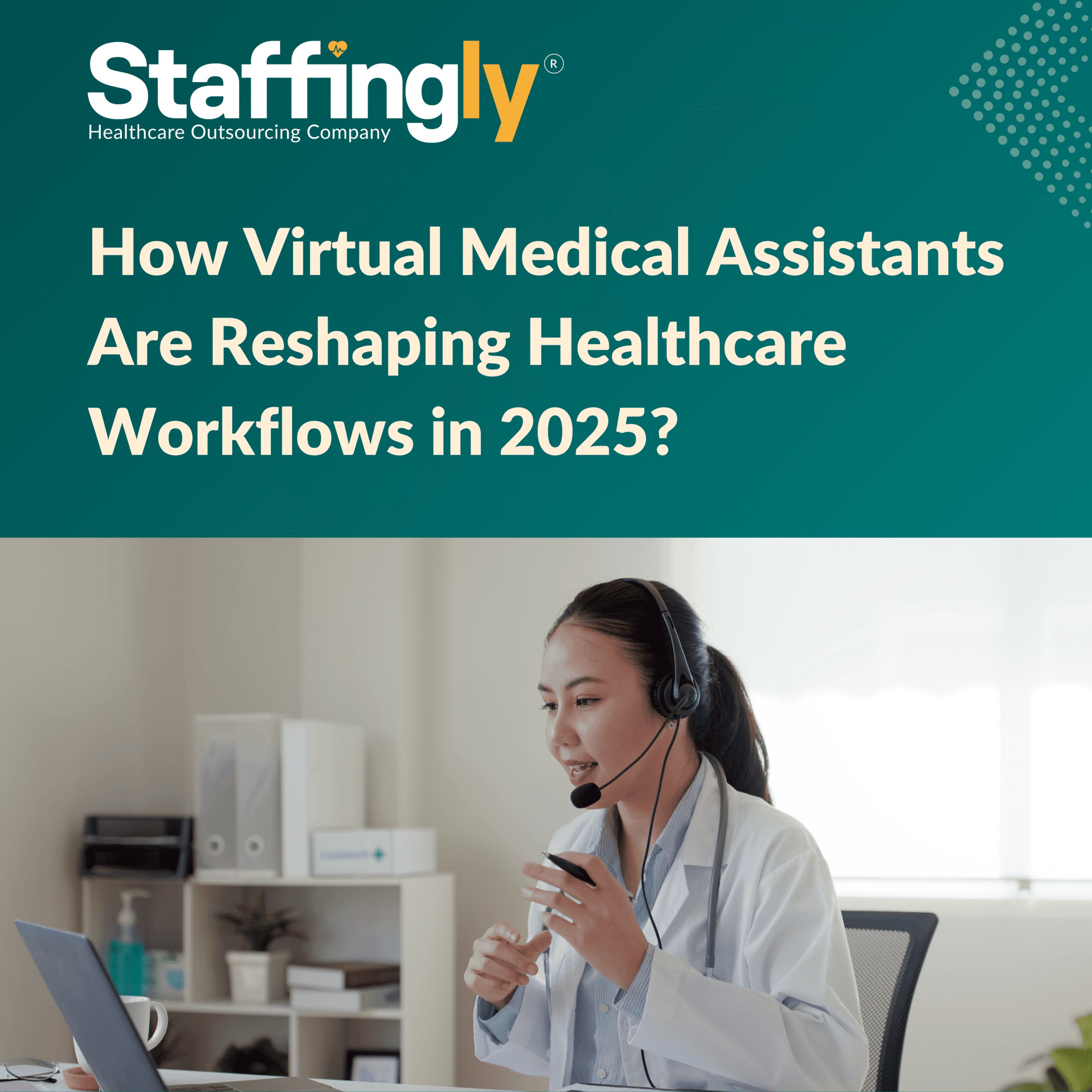
How Virtual Medical Assistants Are Reshaping Healthcare Workflows in 2025?
It’s 7:45 a.m. on a Monday morning at Dr. Smith’s family clinic. The phone lines are already jammed. Patients are calling to reschedule appointments, check lab results, and ask for prescription refills. The front desk staff looks overwhelmed, already behind on billing and insurance verification. By the time Dr. Smith sees her first patient, she’s already spent 40 minutes on administrative tasks that could’ve been automated. But today is different—because her colleague, Dr. Joe, has something new up his sleeve:

How Virtual Assistants Enhance Patient Engagement and Satisfaction?
At a bustling multi-specialty clinic in Texas, the front desk was drowning. Phone lines were jammed with patients trying to reschedule appointments. A nurse spent more time leaving voicemails than charting. Meanwhile, a diabetic patient missed her follow-up simply because she forgot the date. That week, leadership finally asked: How can we improve patient engagement and satisfaction—without burning out our team? They found their answer not in a new hire, but in a virtual medical assistant—an AI-powered tool that now
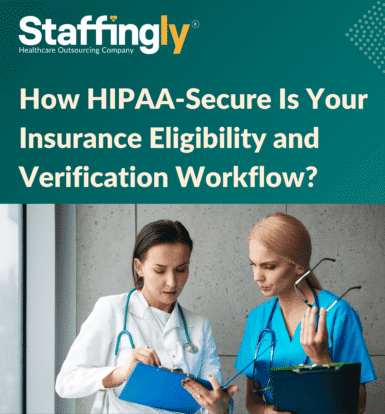
How HIPAA-Secure Is Your Insurance Eligibility and Verification Workflow?
It was 8:15 AM when Maria, a new patient, walked into Dr. Reyes’ clinic for her physical therapy evaluation. The intake team had completed her forms, and the therapist was ready to begin. But the moment the front desk ran her insurance, red flags appeared. The eligibility report didn’t include required modifiers. Her plan details looked outdated. And no one could confirm if prior authorization was needed—or if insurance would deny the visit after the fact. As the staff scrambled
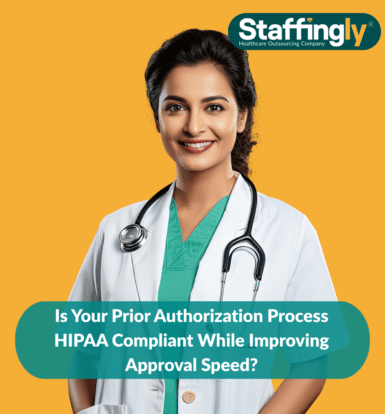
Is Your Prior Authorization Process HIPAA Compliant While Improving Approval Speed?
The clinic was buzzing. Dr. Patel had just diagnosed a patient with a condition requiring an urgent MRI. But the real bottleneck wasn’t the scan—it was the prior authorization. The front desk scrambled to submit paperwork, fax forms, and make calls. Meanwhile, the patient waited days. The delay wasn’t just frustrating—it was risky. In today’s fast-paced healthcare world, speed matters. But so does compliance. Especially when dealing with protected health information (PHI), every click, call, and form needs to meet
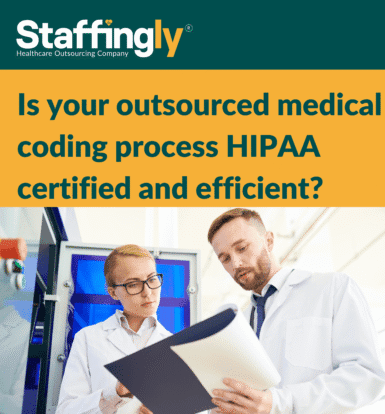
Is your outsourced medical coding process HIPAA-certified and efficient?
The audit report wasn’t what the clinic expected. Over 15% of the claims submitted in the last quarter were either under-coded or missing supporting documentation. Worse, some PHI had been shared with a third-party vendor that wasn’t HIPAA-compliant. The billing backlog grew, reimbursements slowed, and trust was lost—not just with the payers, but with patients too. All of this stemmed from a common oversight: outsourcing medical coding to a partner that wasn’t certified or secure enough. Why Outsourced Coding Deserves
 Book a Demo to Build Your Team Today!
Book a Demo to Build Your Team Today!


 Read Case Studies
Read Case Studies 



 Virtual Medical Assistants
Virtual Medical Assistants



